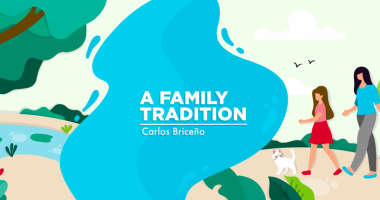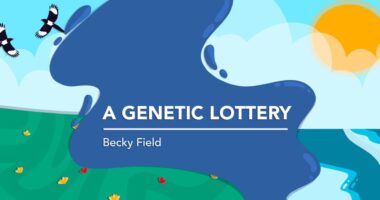The Importance of Making Sure Others Feel ‘Beloved on the Earth’

A recent text message reminded me that just because someone has Huntington’s disease (HD) doesn’t mean it will cause their death. It also helped me better understand the importance of showing someone how much you love and care for them — especially when they’re not feeling well.
The text was from my mother-in-law, Edwina: “Say a prayer for Mark. He had another seizure. I just got to the hospital. I don’t know anything yet. I have not called anyone. I will do that later.”
Mark, who gave us permission to share this story, is my wife Jill’s younger brother. I have written about the car accident he was in as a teenager that left him with medical issues, including seizures.
I called Jill to let her know. She was concerned, but she’s been down this road with Mark before, as he’s been taken to the hospital multiple times due to lingering effects of the accident.
When she finally heard from her mom, Jill was shaken. She said her brother was having uncontrollable seizures and that the hospital in the small town where he lived couldn’t stop them. They were sending him by helicopter to a bigger and better hospital nearby.
That didn’t sound good. Jill said that what he was experiencing could do permanent brain damage — or worse, he could die.
Jill’s voice cracked as she explained all this. She said she was going to drive to Pennsylvania, where her brother and mother live, as her mom sounded deeply shaken and worried.
Edwina and Jill are extremely resilient and calm, especially during emergencies. My joke is that, if the world were ending, they’d both say, “Oh, yes, we just lost half of North America. But that just means we still have half of it left, so no need to worry.” So Edwina’s worry was cause for concern.
I told Jill I was going with her. We packed the car, put our dog in the back seat, and started the three-and-a-half-hour drive to Pittsburgh.
One of our conversations in the car centered on her rare disease. As readers of this column know, Jill is gene-positive for HD.
When someone she knows is admitted to the hospital, Jill said it reminds her that something could kill her long before HD does. This is not a fun conversation to have, but it’s her reality.
When we arrived in Pittsburgh, it was too late to visit Mark, who, at that point, was in a medically induced coma in the intensive care unit. The next morning, the neurologist took Mark off the medication that kept him asleep — preventing him from having more seizures — and then checked to see how serious the damage was to his brain.
When Mark woke up, he was a bit groggy, but he could understand commands and passed all the neurological exams. In fact, he was well enough to be transferred to a regular hospital room that afternoon, and then was discharged the next day.
Jill was relieved he was better. She was also grateful I was with her during the trip. I told her I love her, so of course I wanted to be with her.
Because time is so precious, I want to be with her as often as I can, mainly because being by someone’s side can be so profound, as Mark found out after he woke up.
He saw his girlfriend and his sister standing by his hospital bed, with his mother and me waiting to see him in another part of the hospital, since only two people could visit him at a time. He was grateful we were all there and that he was alive.
That visit taught me that it’s not what you die of that’s important (we all die, after all), but that you feel beloved, as the late short story writer and poet Raymond Carver wrote:
“And did you get what
you wanted from this life, even so?
I did.
And what did you want?
To call myself beloved, to feel myself
beloved on the earth.”
Note: Huntington’s Disease News is strictly a news and information website about the disease. It does not provide medical advice, diagnosis, or treatment. This content is not intended to be a substitute for professional medical advice, diagnosis, or treatment. Always seek the advice of your physician or other qualified health provider with any questions you may have regarding a medical condition. Never disregard professional medical advice or delay in seeking it because of something you have read on this website. The opinions expressed in this column are not those of Huntington’s Disease News or its parent company, BioNews, and are intended to spark discussion about issues pertaining to Huntington’s disease.








Comments
Linda Miller
Thank you for your column, Carlos. I will enjoy reading it as long as you and your wife decide to continue writing it. I have just lost my husband to this dreadful condition and have two adult children who are gene-positive.
I will follow the events at next week's convention with great interest, and, as with many of us, my primary objective will be to hope for a clinical trial's result to prove to be a CURE or at least a TREATMENT for all who have it.
Kudos to you and your wife and daughter for your bravery in this endeavor and thank you for your tender insight into the emotional aspect of how this affects our lives. Thank you for your 'beloved' comment. It means the world to me!
Carlos Briceño
Thank you for your words. I am sorry for your loss and I will keep your family in my prayers. We have been very lucky to have the openness we have in our family. As sad as talking about HD can be, we are hopeful that our words can help the HD community. I will be looking forward to all of the great information that will come from the HDSA Convention.